Gardeners Tower Hamlets: Cultivating Green Spaces in East London
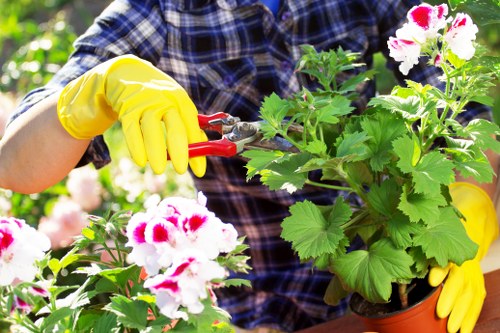
Gardeners in Tower Hamlets play a crucial role in maintaining and enhancing the green spaces within this vibrant borough of East London. From community gardens to public parks, the efforts of local gardeners contribute significantly to the area's aesthetic appeal and environmental health.
Tower Hamlets is known for its diverse population and rich cultural heritage, which is beautifully reflected in its gardens and green areas. Whether you are a seasoned gardener or a green-thumbed enthusiast, Tower Hamlets offers numerous opportunities to engage with nature and contribute to the community.
In this article, we will explore the various aspects of gardening in Tower Hamlets, including popular green spaces, community initiatives, and tips for maintaining your garden in this unique urban setting.
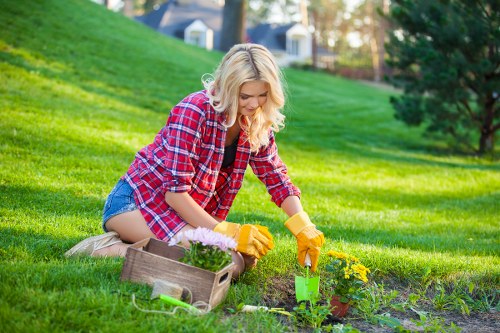
The Importance of Green Spaces in Tower Hamlets
Green spaces are essential for urban environments, providing a respite from the hustle and bustle of city life. In Tower Hamlets, gardens and parks offer residents a place to relax, exercise, and connect with nature.
Moreover, green areas play a vital role in improving air quality, reducing urban heat islands, and supporting biodiversity. Gardeners contribute to these benefits by maintaining healthy plant life and promoting sustainable practices.
The presence of gardens and green spaces also enhances property values and fosters a sense of community among residents. Shared gardening projects can bring people together, fostering collaboration and mutual support.
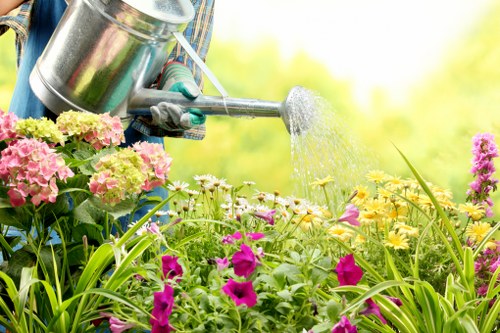
Popular Gardens and Parks in Tower Hamlets
Victoria Park
Victoria Park is one of the most beloved green spaces in Tower Hamlets. Spanning over 86 hectares, it offers a wide range of amenities, including sports facilities, walking paths, and beautiful ornamental gardens.
Cherry Gardens
Cherry Gardens is a hidden gem known for its vibrant flower beds and peaceful atmosphere. It is a perfect spot for gardeners to find inspiration and enjoy the beauty of nature.
Mulberry Garden
Mulberry Garden is a community-driven space that focuses on sustainable gardening practices. It provides resources and support for local gardeners interested in eco-friendly techniques.
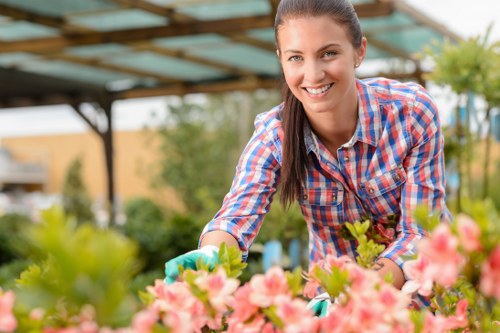
Community Gardening Initiatives
Community gardens in Tower Hamlets offer residents the chance to grow their own vegetables, herbs, and flowers. These initiatives promote sustainable living and provide fresh produce to the community.
Participating in a community garden also fosters social connections and encourages knowledge sharing among gardeners. It’s an excellent way to learn new gardening techniques and exchange tips with fellow enthusiasts.
Local organizations often support these initiatives by providing funding, tools, and educational workshops. This support ensures that community gardens remain vibrant and productive spaces for everyone to enjoy.
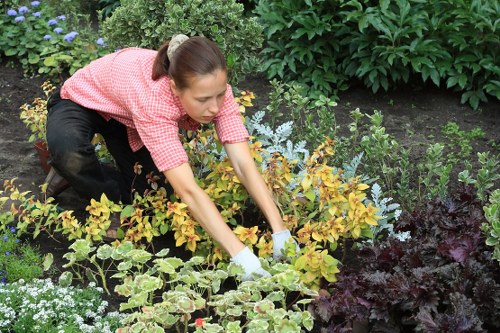
Tips for Gardening in Tower Hamlets
Understanding the Climate
Tower Hamlets has a temperate maritime climate, which means mild winters and cool summers. Understanding the local climate is crucial for selecting the right plants and planning your gardening activities.
Soil Preparation
Healthy soil is the foundation of a thriving garden. In Tower Hamlets, gardeners should test their soil and amend it with organic matter to ensure fertility and good drainage.
Plant Selection
Choosing the right plants is essential for a successful garden. Opt for native species and those that are well-suited to the local climate to ensure they thrive with minimal maintenance.
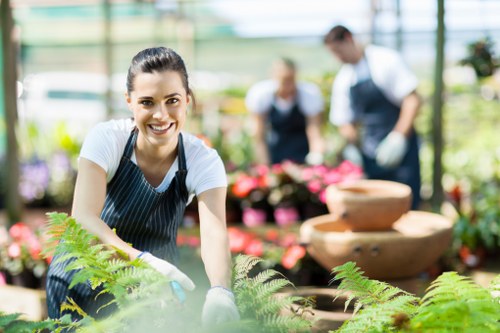
Sustainable Gardening Practices
Sustainability is a key focus for gardeners in Tower Hamlets. Implementing eco-friendly practices not only benefits the environment but also enhances the health of your garden.
- Composting: Recycling kitchen and garden waste into compost enriches the soil and reduces landfill waste.
- Rainwater Harvesting: Collecting rainwater helps conserve water and provides a natural source for irrigation.
- Organic Pest Control: Using natural predators and organic treatments minimizes the impact of pesticides on the environment.
By adopting these practices, gardeners can create sustainable and resilient gardens that contribute positively to the local ecosystem.
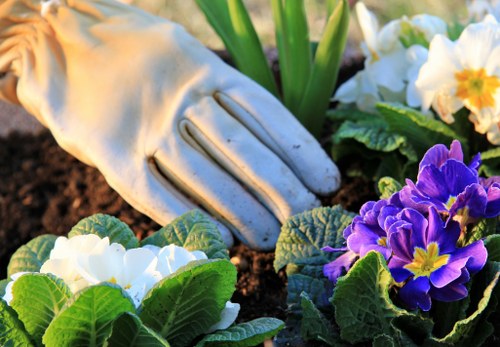
Local Gardening Resources
Gardeners in Tower Hamlets have access to a variety of resources to support their gardening endeavors. Local nurseries, gardening clubs, and community centers offer tools, plants, and expert advice.
Additionally, the Tower Hamlets Council provides grants and funding opportunities for community gardening projects. These resources help maintain and expand green spaces throughout the borough.
Educational workshops and events are regularly held, offering valuable information on topics such as urban gardening, composting, and sustainable practices. These events are great opportunities for gardeners to learn and network.
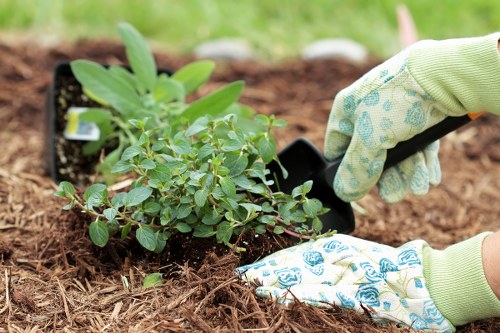
Engaging with the Gardening Community
Joining the gardening community in Tower Hamlets can enhance your gardening experience. Participating in local events, volunteering in community gardens, and joining gardening clubs are excellent ways to get involved.
Networking with other gardeners allows you to share knowledge, exchange plants, and collaborate on projects. It also fosters a sense of belonging and mutual support within the community.
Many community gardens organize regular meet-ups and social events, providing opportunities to connect with fellow gardening enthusiasts and build lasting relationships.
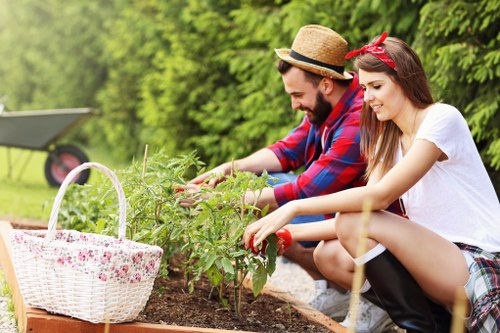
Challenges and Solutions for Gardeners in Tower Hamlets
Urban gardening in Tower Hamlets comes with its unique set of challenges, such as limited space, pollution, and varying soil quality. However, with the right strategies, these obstacles can be overcome.
- Limited Space: Utilize vertical gardening techniques and container gardening to maximize space in small areas.
- Pollution: Use raised beds and clean soil to reduce the impact of urban pollution on your plants.
- Soil Quality: Regularly amend your soil with organic matter to maintain fertility and structure.
By addressing these challenges, gardeners can create productive and beautiful gardens even in the heart of the city.
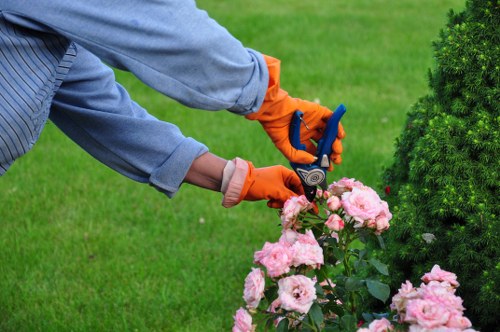
Future of Gardening in Tower Hamlets
The future of gardening in Tower Hamlets looks promising, with increasing interest in sustainable practices and community-driven projects. As awareness of environmental issues grows, more residents are likely to engage in gardening as a means of contributing to a greener and healthier community.
Technological advancements, such as smart gardening tools and apps, are also making gardening more accessible and efficient. These innovations can help gardeners monitor plant health, optimize watering schedules, and manage their gardens more effectively.
With continued support from local organizations and the community, Tower Hamlets is set to become an even greener and more vibrant place for gardeners and residents alike.
Nearby Areas to Tower Hamlets for Gardeners
Gardeners in Tower Hamlets can also explore nearby areas that offer additional green spaces and gardening opportunities. These areas are easily accessible and provide unique features that complement the gardens in Tower Hamlets.
- Shoreditch: Known for its trendy community gardens and urban farming projects.
- Hackney: Offers a variety of parks and green spaces, including the famous London Fields.
- Bethnal Green: Features several community gardens and the beautiful Victoria Park.
- Bow: Home to the Bow Creek Park, offering extensive walking paths and recreational facilities.
- Isle of Dogs: Provides waterfront gardens and green areas ideal for relaxation and gardening.
- Stratford: Known for its modern parks and green spaces, including the Queen Elizabeth Olympic Park.
- Whitechapel: Offers both community gardens and historic green areas with rich biodiversity.
- Wapping: Features riverside gardens and quiet green spaces perfect for gardening enthusiasts.
- Poplar: Includes several parks and community gardens supporting local biodiversity.
- Dalston: Known for its vibrant community gardens and eco-friendly gardening initiatives.
- Canary Wharf: Offers landscaped gardens and green rooftops amidst its bustling financial district.
- Prescot Street: Features small, picturesque gardens ideal for urban gardening.
- Brick Lane: Home to innovative community gardening projects and green spaces.
- Hackney Wick: Provides expansive green areas and community gardens supporting local flora.
- Docklands: Offers waterfront gardens and public green spaces for relaxation and gardening.
Conclusion
Gardening in Tower Hamlets is a rewarding endeavor that enhances both the environment and the community. With a variety of green spaces, supportive community initiatives, and ample resources, gardeners have everything they need to cultivate thriving gardens in this dynamic borough.
Whether you are a beginner or an experienced gardener, Tower Hamlets offers numerous opportunities to engage with nature, contribute to sustainability, and connect with like-minded individuals. Embrace the green thumb spirit and help make Tower Hamlets an even greener and more vibrant place to live.
Frequently Asked Questions
1. What are the best plants to grow in Tower Hamlets?
Native plants and those suited to a temperate maritime climate work best. Consider plants like lavender, rosemary, daisies, and vegetable varieties such as tomatoes and lettuce.
2. How can I get involved in community gardening in Tower Hamlets?
Join local gardening clubs, attend community garden events, or contact the Tower Hamlets Council for information on available community gardening projects.
3. What resources are available for gardeners in Tower Hamlets?
Local nurseries, gardening clubs, community centers, and the Tower Hamlets Council offer tools, plants, funding, and educational workshops to support gardeners.
4. Are there any sustainable gardening practices recommended for Tower Hamlets?
Yes, practices such as composting, rainwater harvesting, organic pest control, and using native plants are highly recommended for sustainable gardening in Tower Hamlets.
5. What challenges do gardeners face in Tower Hamlets?
Common challenges include limited space, urban pollution, and varying soil quality. Solutions include vertical gardening, raised beds, and regular soil amendments.
